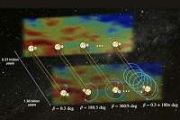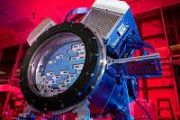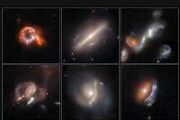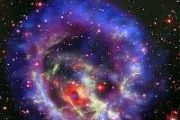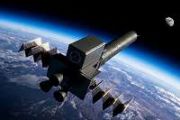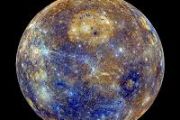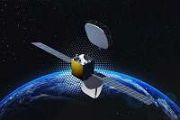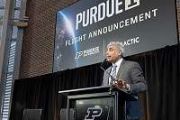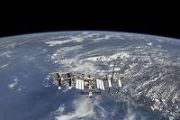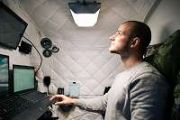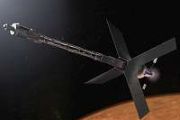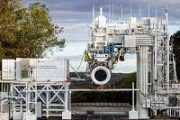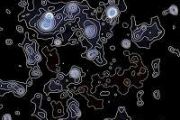
Copernical Team
Firefly Aerospace aims to launch eight CubeSat satellites after scrub
 Firefly Aerospace will try to get its Alpha rocket carrying eight CubeSat satellites into space on Tuesday night from California's Vandenberg Space Force Base after the mission was scrubbed on Monday.
The satellites are being put into space under NASA's Launch Services Program Venture. Officials blamed a "last minute" ground systems issues led to the mission's pause on Monday.
"O
Firefly Aerospace will try to get its Alpha rocket carrying eight CubeSat satellites into space on Tuesday night from California's Vandenberg Space Force Base after the mission was scrubbed on Monday.
The satellites are being put into space under NASA's Launch Services Program Venture. Officials blamed a "last minute" ground systems issues led to the mission's pause on Monday.
"O A snaking scar on Mars

A fascinating feature takes centre stage in this new image from ESA’s Mars Express: a dark, uneven scar slicing through marbled ground at the foot of a giant volcano.
Proba-3’s new view on space weather
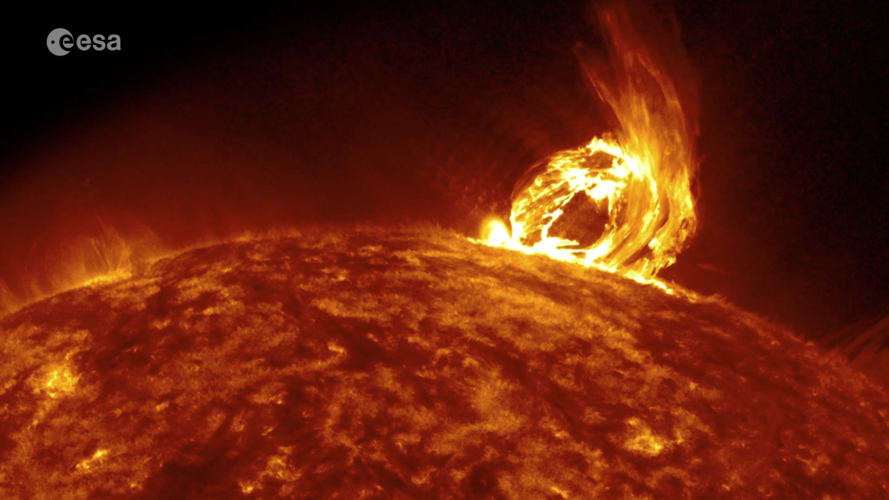 Video:
00:02:05
Video:
00:02:05
Space weather can affect satellites in orbit, trigger geomagnetic storms on Earth and interfere with ground infrastructure. We need to understand it better, and the best way to do that is look at where it comes from.
The Sun’s corona, its upper atmospheric layer, gives rise to the solar wind and is where coronal mass ejections are spawned: massive outward explosions of charged plasma. ESA’s Proba-3 double-satellite mission will use formation flying to open up sustained coronal views. Mimicking a total solar eclipse, one satellite will block out the fiery face of the Sun by casting a shadow onto the other.
University of Michigan wins NASA's lunar lander challenge award
 The University of Michigan may have topped its college football title with an out-of-this-world science challenge win.
NASA named its team as the winner of its 2024 Human Lander Challenge at a forum in Huntsville, Ala., on Friday.
Michigan beat out 11 other universities throughout the United States who made presentations in front of NASA and space industry experts addressing the
The University of Michigan may have topped its college football title with an out-of-this-world science challenge win.
NASA named its team as the winner of its 2024 Human Lander Challenge at a forum in Huntsville, Ala., on Friday.
Michigan beat out 11 other universities throughout the United States who made presentations in front of NASA and space industry experts addressing the Mapping Mars with Open Science Tools
 Mars rovers uncover new discoveries through careful decision-making by scientists. The Mars 2020 mission focuses on Jezero Crater's geology and searching for signs of ancient microbial life with the Perseverance rover. Researchers at NASA's Jet Propulsion Laboratory (JPL) in Southern California utilized innovative mapping methods to guide both the rover and the Ingenuity helicopter, using open-s
Mars rovers uncover new discoveries through careful decision-making by scientists. The Mars 2020 mission focuses on Jezero Crater's geology and searching for signs of ancient microbial life with the Perseverance rover. Researchers at NASA's Jet Propulsion Laboratory (JPL) in Southern California utilized innovative mapping methods to guide both the rover and the Ingenuity helicopter, using open-s China's Tianwen 2 Probe to Undertake Ambitious Asteroid and Comet Mission
 China's Tianwen 2 probe is set to launch on a Long March 3B rocket in May 2025. This ambitious mission aims to return samples from a near-Earth asteroid and then explore a comet, marking a significant step in space exploration.
The probe's first target is the near-Earth asteroid 469219, also known as Kamo'oalewa in Hawaiian. Tianwen 2 will conduct remote sensing to identify potential landi
China's Tianwen 2 probe is set to launch on a Long March 3B rocket in May 2025. This ambitious mission aims to return samples from a near-Earth asteroid and then explore a comet, marking a significant step in space exploration.
The probe's first target is the near-Earth asteroid 469219, also known as Kamo'oalewa in Hawaiian. Tianwen 2 will conduct remote sensing to identify potential landi Arctic Satellite Broadband Mission Prepares for Launch
 Space Systems Command's (SSC) two Enhanced Polar System Recapitalization (EPS-R) payloads, integrated with Space Norway's Arctic Satellite Broadband Mission (ASBM) vehicles, have arrived at Vandenberg Space Force Base, California. The satellites are set for final integration with the launch vehicle, targeting a dual launch as early as July.
The payloads and host vehicles received shipment
Space Systems Command's (SSC) two Enhanced Polar System Recapitalization (EPS-R) payloads, integrated with Space Norway's Arctic Satellite Broadband Mission (ASBM) vehicles, have arrived at Vandenberg Space Force Base, California. The satellites are set for final integration with the launch vehicle, targeting a dual launch as early as July.
The payloads and host vehicles received shipment SpaceX launches U.S. spy satellites from Vandenberg
 SpaceX launched spy satellites for the United States from Vandenberg Space Force Base on Friday night.
The Falcon 9 rocket lifted off from Space Launch Complex 4 East at the opening of a two-hour window, 8:14 p.m. PDT.
The United States' National Reconnaissance Office described the classified mission as "the second launch of NRO's proliferated architecture, delivering critical sp
SpaceX launched spy satellites for the United States from Vandenberg Space Force Base on Friday night.
The Falcon 9 rocket lifted off from Space Launch Complex 4 East at the opening of a two-hour window, 8:14 p.m. PDT.
The United States' National Reconnaissance Office described the classified mission as "the second launch of NRO's proliferated architecture, delivering critical sp Ahead of Ariane 6 launch, what are the other big rockets?
 Europe's new Ariane 6 rocket is due to blast off for the first time next week, but it will launch into a quickly changing market for heavy space launchers increasingly dominated by SpaceX.
Here are some of the other big rockets competing for the lucrative job of hauling satellites and other missions into space.
- Ariane 6 -
The first flight of the European Space Agency's biggest roc
Europe's new Ariane 6 rocket is due to blast off for the first time next week, but it will launch into a quickly changing market for heavy space launchers increasingly dominated by SpaceX.
Here are some of the other big rockets competing for the lucrative job of hauling satellites and other missions into space.
- Ariane 6 -
The first flight of the European Space Agency's biggest roc Japan succesfully launches H3 next-gen rocket with new observation satellite
 In its third attempt in more than a year, the Japan Aerospace Exploration Agency successfully launched Monday its new H3 rocket carrying with it this time an observation satellite intended to monitor damage on Earth from natural disasters.
"Today, the payload, Daichi-4, was deployed into its operational environment - space - and has commenced its mission," Hiroshi Yamakawa, JAXA's pre
In its third attempt in more than a year, the Japan Aerospace Exploration Agency successfully launched Monday its new H3 rocket carrying with it this time an observation satellite intended to monitor damage on Earth from natural disasters.
"Today, the payload, Daichi-4, was deployed into its operational environment - space - and has commenced its mission," Hiroshi Yamakawa, JAXA's pre 
